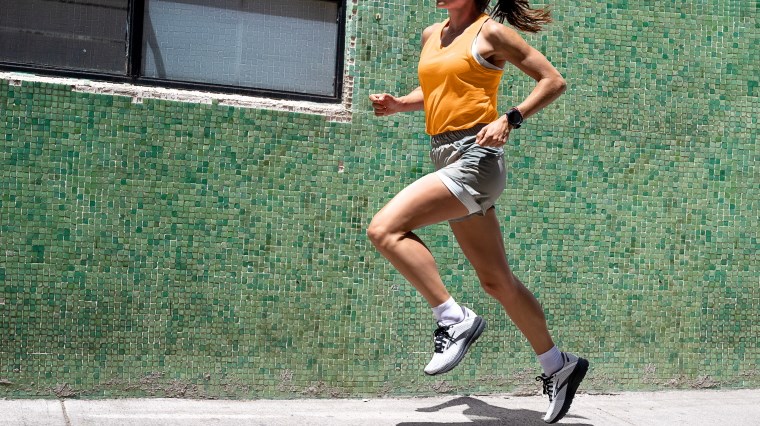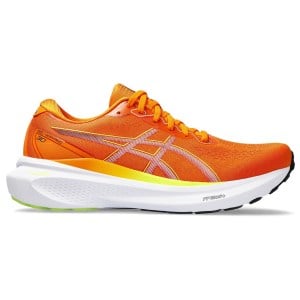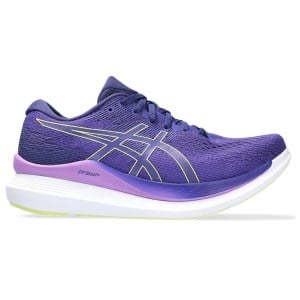How To Fix Sore Calves When Running For Beginners

Struggling with sore calves when running a lap or two? You’re not alone, and it’s not just about lacing up the right pair of shoes or donning compression tights. We’re diving deep into the various causes of sore calves, as well as common preventive measures and steps to take if you experience pain in your calves while running.
So put on your running shorts and lace up your running shoes; we’ve got some ground to cover.
Why proper handling of sore calves is important
Stepping into the world of running for the first time can be exhilarating, but like any new endeavour, it comes with its own set of challenges. One of the most common issues faced by novice runners is sore calves. It’s not just a minor discomfort; if not addressed promptly, it can lead to severe injuries and put you out of commission for some time.
We’ve all been there: you’re a few weeks into your running journey, and just as you’re starting to feel the rhythm, your calves scream for attention. It’s a rite of passage for many, but understanding its root causes can make all the difference.
Whether it’s due to a lack of proper warm-up, your running technique, or even the men's trail running shoes or women's trail running shoes you’re wearing, you’re feeling that tell-tale pain running up your leg. Ow! But it’s nothing serious, right?
Perhaps, but our suggestion is to take it seriously nonetheless.
Here’s why nipping the problem in the bud is essential: ignoring the initial twinges could lead to prolonged pain and in some cases, it could develop into conditions like muscle strains, vascular problems or nerve compression.
For athletes and seasoned runners especially, recognising the signs of sore calves and properly addressing the underlying causes will mean less time away from training. If you’re intent on getting serious with running, knowing how to handle sore calves will go a long way towards helping you maintain your fitness goals and performance levels.
The pitfalls of skipping warm-ups, poor posture & incorrect footwear
Let’s get straight to the point: understanding why you get sore calves when running is the first step in preventing future discomfort and more importantly, potential injuries.
One of the most common mistakes many novice runners commit is skipping a proper warm-up. A good warm-up prepares your muscles for the physical exertion ahead. When you skip the warm-up stage, you open yourself up to potential muscle strains and cramps, which are often the culprits behind calf pain.
Poor running posture can also contribute to calf pain, such as overstriding that may put excessive strain on your calf muscles. In turn, this could cause immediate discomfort and further lead to long-term issues if not corrected.
Inappropriate footwear is another factor to consider, with generic shoes simply lacking the necessary features to protect your feet from the repetitive impacts of running.
Shoe brands like ASICS shoes or Brooks shoes aren’t just well-known among athletes for their design. Athletic or running shoes from reputable, research-based brands are engineered to provide support for the specific sport they cater for. Your running shoes should offer adequate arch support and have a cushioning system that aligns with your running style.
These are only a few of the more common causes of sore calves when running. If you’re still experiencing muscle aches despite addressing these points, we strongly suggest consulting with a doctor immediately.
💡KEY TAKEAWAY: Identifying the root causes of your calf pain is the first step in a journey towards a more comfortable and effective running experience. Whether it’s tweaking your warm-up routine, adjusting your running technique, or investing in better footwear, each change is a step towards a pain-free run.
Proactive steps to sidestep sore calves
Prevention is better than cure, especially when it comes to running-related injuries like sore calves. Here are a few preventive measures that can make a world of difference in your running experience.
As mentioned earlier, always do your warm-ups. Dynamic stretching is your go-to here. Think leg swings and lunges, which not only get the blood flowing but also prepare your calf muscles for the exertion to come.
Check-in with your body and running form. Your running form should be a coordinated effort that ensures your entire body moves in harmony. If you’re prone to heel striking (landing your steps on the heel of your foot) and it's causing you discomfort, then a midfoot strike coupled with a slight forward lean may be a less strenuous fit for your running form. You may also want to consider gait retraining, which methodically retrains the way you run and could potentially reduce the risk of calf strain and other injuries.
However, it's important to note there is nothing inherently wrong with heel striking if it feels comfortable, natural and pain-free to you. As the most common form of footstrike, it's the same situation for many runners. High mileage running shoes frequently cater to heel strikers by providing targeted cushioning and reinforcing the outsole in this high-impact zone.
To complement these tips, you should also wear footwear that provides support for your running style. Your muscles are an interconnected network; what’s good for your feet directly affects your calf muscles, and so on. The right pair of running shoes is the one that provides the support and cushioning your feet need, benefiting your performance from the ground up.
Lastly, gradually increase your training load in terms of both distance and pace. This will allow your muscles - including your calves - to adapt to the natural stresses of running safely and steadily. Many beginner runners have had success following a Couch To 5K training plan that not only provides structure and avoids overtraining in their running routine, but can help fuel their motivation.
💡KEY TAKEAWAY: Being proactive with these preventive measures could greatly reduce the risk of developing sore calves when running. Listen to your body and adjust your routine accordingly. If symptoms persist, don’t hesitate to consult a healthcare professional to rule out any underlying issues.
Alleviating calf discomfort
Sore calves can put a damper on your running enthusiasm, but try as we might, there will be times when we’ll feel the pain part of ‘no pain, no gain’. Injuries occur from time to time, but that doesn't mean that this is a mantra you should live - or run - by. Thankfully, there are both immediate and long-term remedies for sore calves that you can safely try.
Rest, ice, compression and elevation, commonly known as the RICE method, are your first lines of defence. This approach not only eases the pain but also minimises any swelling that’s correlated to your sore calves. Alternately, heating pads could also work wonders in relaxing those tense calf muscles. The key factor in this method is timeliness; don’t wait for the pain to get worse.
If the discomfort of your sore calves persists, over-the-counter pain relievers like ibuprofen could be a great help, though we would caution you to take only over-the-counter pain relievers that your doctor has previously recommended to you and that you’re certain you don’t have allergic reactions to.
A cost-free remedy is stretching. Incorporate calf raises, wall stretches and floor exercises into your routine. There are many free stretching routines available that you could try at home and that don’t require any special equipment.
If you find yourself constantly battling calf pain, you could also consider physical therapy for long-term relief. Physical therapy is not just for retraining muscles after accidents or broken limbs; it’s a holistic approach that addresses various issues with muscle physiology, like muscle imbalances or flawed running techniques.
When to seek professional help
Persistent calf pain isn’t something to brush off. If the pain intensifies at any point or if you notice symptoms like redness, fever or shortness of breath accompanying bouts of muscle aches, it’s more than likely time to see a doctor. It’s always better to be safe and ensure there aren’t any underlying complications.
💡KEY TAKEAWAY: There are remedies that you can try that could help address sore calves and prevent future discomfort. With that said, always listen to your body and don’t hesitate to seek medical advice when in doubt.
At Sportitude, our goal is to power up your running experience. With us, you can experience a world where high-quality athletic wear meets genuine enthusiasm for running, keeping you equipped and inspired from the first step to the finish line.


